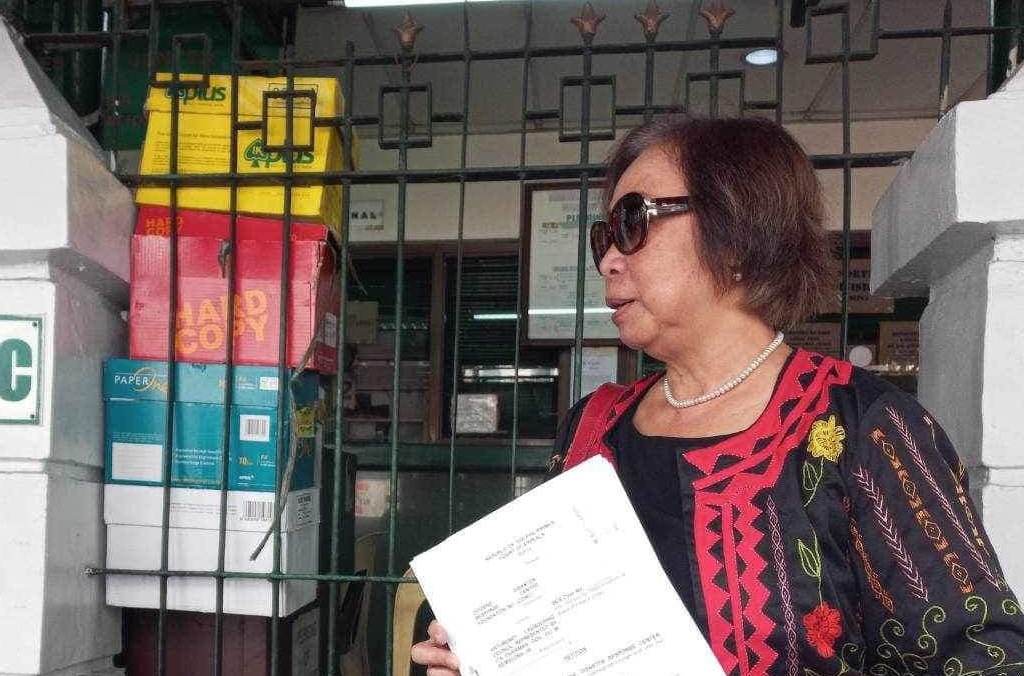Republic Act No. 10168 or the Terrorism Financing Prevention and Suppression Act of 2012 (TFPSA) is once again fraught with a legal challenge.
In a petition filed today with the Court of Appeals, the Citizens’ Disaster Response Center Foundation, Inc. (CDRC), assisted by the National Union of Peoples’ Lawyers (NUPL), questions the factual and legal bases of the freezing of its bank accounts by the Anti-Money Laundering Council (AMLC). The AMLC ordered the bank to freeze CDRC’s deposits upon a finding that it is a “direct recipient of funds” from the bank accounts of Leyte Center for Development Inc.(LCDe), which are the subject of another freeze order.
CDRC asserts that the funds in question were not intended were, in fact, returned to them by LCDe, as they were erroneously deposited in excess of what CDRC had originally provided for LCDe’s relief operations following Typhoon Agaton. All such funds benefited the disaster survivors and were duly accounted for. “Hence, there is no probable cause to conclude that both CDRC and LCDe were engaged in criminal activity in light of the totality of circumstances,” said NUPL President Atty. Ephraim B. Cortez, citing the definition of probable cause in the SC Rules on Anti-Terrorism Cases.
Financing terrorism as defined in RA 10168 requires the existence of ‘willful intention’ or ‘knowledge’ to use the funds or property to carry our or facilitate the commission of a terrorist act or by a terrorist. This is pursuant to the International Convention on the Suppression of Financing Terrorism, to which the Philippines acceded in 2004. “How such crucial mental element was established by the AMLC from aboveboard bank records boggles the mind—unless, of course, the AMLC again used fabricated testimonies from anonymous witnesses that CDRC was deprived of the opportunity to refute” Atty. Cortez noted.
“The AMLC indeed serves as jury, judge and executioner in conducting bank inquiries, determining probable cause, and issuing freeze orders–all without notice and hearing or judicial intervention. Worse, there is no immediate recourse for them because the law does not require that they be notified of the freezing. They are also allowed to file petitions like this only within 20 days from the issuance, not from notice, of the freeze order,” Atty. Cortez added. He cites the experience of non-government organizations (NGOs) like the Rural Missionaries of the Philippines (RMP), Amihan Federation of Peasant Women (Amihan), and the LCDe whose operations had been paralyzed before the courts could act on their petitions.
CDRC’s petition thus includes an as-applied challenge to the constitutionality of the AMLC’s unbridled power to cause deprivations of property under Section 11 for being violative of the fundamental rights to due process as well as freedom of expression and freedom of association. “This malicious tarnishing and freezing of assets belonging to red-tagged NGOs creates a chilling effect on their advocacies and stifles their right to utilize their resources to pursue aims that otherwise fall under protected freedoms,” stated Atty. Cortez.
Atty. Cortez underscored that targeted financial sanctions and other draconian counter-terrorism measures run counter to the Philippines’ obligations under core instruments and customary international law upholding fundamental rights and liberties. He concluded, “The overreaching powers inherent in the TFPSA and the ATA only serve as potent weapons to silence dissenting voices that the government has indiscriminately labeled as terrorists. But in what world can providing services to poor, disaster-stricken communities be considered an act that carries out, finances, or facilitates terrorism?” ###
Reference:
NUPL Public Information Desk
+639174316396
